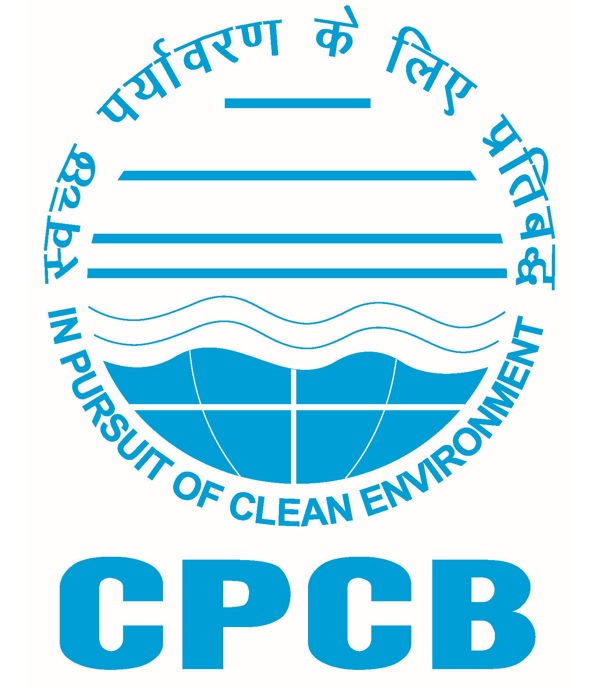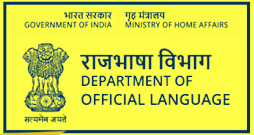- Air Quality Management
- Mandate
- National Air Monitoring programme
- Air quality data
- Graded Response Action Plan
- PAAC - EPC (Environment Protection Charge)
- AQMN Related Portals
- Clean Air Campaign
- Reports
- Publications
- Non Attainment cities /Million Plus Cities
- Source apportionment studies
- Delhi NCR - Old Vehicles List
- Air Quality Management in Delhi-NCR
- National Clean Air Programme
- Specification of Manual –PM 2.5 Sampler
- Specs of Manual PM2.5 Low Volume Sampler
- Water Quality Management
- Quality Assurance/Quality Control
- Waste Management
- Hazardous Waste
- E-Waste
- Municipal solid waste
- Bio Medical Waste
- Plastic Waste
- Rules
- Technical guidelines
- Annual Reports
- Information on Compostable and Biodegradable plastics
- Overview of Plastic Waste
- PWM Publications
- Directions issued
- Registration of Producers/Brand owners (PIBOs) under PWM Rules
- Withdrawl Notice of PRO registration
- Reports Submitted in Hon'ble NGT
- Single Use Plastic (SUP)
- Batteries Management
- Construction & Demolition waste
- Waste Management Technologies
- Used Oil EPR
- Waste Tyre
- Contaminated Sites
- Industrial Pollution
- Pollution Control implementation
- CREP
- Critically Polluted Areas(CPAs)
- Common directions issued
- Monitoring of Industrial Discharge
- Fly Ash Management and Utilization
- Online Monitoring of Industrial Emission & Effluent
- Noise Pollution
- Urban Pollution
- Pollution Control Planning
- Information Technology
- Environmental Training
- NGT/Court Cases
- Public Relations
- Annual Reports
- Infrastructure Development
- Regional Directorates / Project Office
- Old Projects
- Research and Development

- HOME
- ABOUT CPCB
- STANDARDS
- CPCB'S ACTIVITIES
- CPCB's Technical Guidelines /SOPs
- Air Quality Management
- Mandate
- National Air Monitoring programme
- Air quality data
- Graded Response Action Plan
- PAAC - EPC (Environment Protection Charge)
- National Clean Air Programme
- AQMN Related Portals
- Clean Air Campaign
- Reports
- Publications
- Non Attainment cities /Million Plus Cities
- Source apportionment studies
- Delhi NCR - Old Vehicles List
- Specs of Manual PM2.5 Low Volume Sampler
- Water Quality Management
- Quality Assurance/Quality Control
- Waste Management
- Hazardous Waste
- Used Oil EPR
- E-Waste
- Waste Tyre
- Municipal solid waste
- Bio Medical Waste
- Plastic Waste
- Rules
- Technical guidelines
- Annual Reports
- Information on Compostable & Biodegradable Plastic
- Overview of Plastic Waste
- PWM Publications
- Directions issued
- Registration of Producers/Brand owners (PIBOs) under PWM Rules
- Withdrawl Notice of PRO registration
- Reports Submitted in Hon'ble NGT
- Action Taken Reports
- Single Use Plastics (SUP)
- Batteries Management
- Construction & Demolition waste
- Waste Management Technologies
- Contaminated Sites
- Industrial Pollution
- Pollution Control implementation
- Fly Ash Management and Utilization
- Online Monitoring of Industrial Emission & Effluent
- Categorization of Industrial Sectors
- CREP
- Critically Polluted Areas(CPAs)
- Common directions issued
- Monitoring of Industrial Discharge
- Noise Pollution
- Urban Pollution
- Pollution Control Planning
- Information Technology
- Research and Development
- Environmental Training
- NGT/Court Cases
- Public Relations
- Infrastructure Development
- Regional Directorates / Project Office
- Old Projects
- AIR | WATER | NOISE DATA
- Air Quality Data
- Daily AQI Bulletin (PDF)
- Live Air Quality Index
- Continuous tracking of ambient PM2.5 & PM10 concentration (as per GRAP)
- Live Air Quality Data of Monitoring stations
- Manual Monitoring Data
- Agra Air quality data
- Special Monitoring Data
- Ambient AQ Data - Delhi NCR
- Air Quality Forecast in Delhi-NCR (Source: SAFAR, IITM, Pune)
- Air Quality early warning for Delhi (Source-IITM)
- Water Quality Data
- Noise Monitoring Data
- Air Quality Data
- LABORATORIES
- CONTACT US
- Air Quality Management
- Water Quality Management
- Quality Assurance/Quality Control
- Waste Management
- Contaminated Sites
- Industrial Pollution
- Noise Pollution
- Urban Pollution
- Pollution Control Planning
- Information Technology
- Environmental Training
- NGT/Court Cases
- Public Relations
- Annual Reports
- Infrastructure Development
- Regional Directorates / Project Office
- Old Projects
- Research and Development
The issue of environmental protection has brought the consumers, the industry, and the government to a common platform where each has to play its own role. The government and legislatures are using their influence to reduce environmental and health hazards due to industrialisation and to stimulate the development of clean(er) technologies. However, the environment is under tremendous stress from rapid industrialisation, unplanned urbanisation and changing consumption patterns in the race to achieve better living standards. It is amply clear that regulatory actions by pollution control agencies alone can not restore the environment to its pristine state. Pro-active and promotional roles should also be geared up in harmony with the overall environmental protection strategy. The time has come for consumers to take the lead in prompting manufacturers to adopt clean and eco-friendly technologies and environmentally-safe disposal of used products, along with preventive and mitigative approaches.
To increase consumer awareness, the Government of India launched the eco-labelling scheme known as `Ecomark' in 1991 for easy identification of environment-friendly products. Any product which is made, used or disposed of in a way that significantly reduces the harm it would otherwise cause the environment could be considered as Environment-Friendly Product.
The criteria follows a cradle-to-grave approach, i.e. from raw material extraction, to manufacturing, and to disposal. The 'Ecomark' label is awarded to consumer goods which meet the specified environmental criteria and the quality requirements of Indian Standards. Any product with the Ecomark will be the right environmental choice.

















